These are the 15 Best Journaling Tips for Beginners to help you find your journaling rhythm.
This post includes affiliate links. As an Amazon Associate, I earn from qualifying purchases, at zero cost to you.

If you’re here, you’re probably looking for a little help with your journaling routine.
Sometimes it can be hard. We don’t know where to start or what to write and we just need a little guidance.
That’s where these super helpful journaling tips come in.
These tips are for anyone needing a little motivation to get going again.
Even if you’re not a beginner and simply struggling to allow your thoughts to flow, these journaling tips will help you find the routine and rhythm in your journaling.
Journaling can be such a great habit. It can help you express your feelings, relieve stress, and add more peace to your life.
Which I think most of us can agree we all can use a little more peace in our lives.
Try out these journaling tips and let me know if they helped you!
This post is all about the 15 best journaling tips for beginners: the full how-to guide.
Why Journaling is a Powerful Tool
Journaling has so many benefits for our mental and emotional well-being. It helps organize our thoughts to make sense of the craziness that might be going on in our minds.
Journaling can help create order when your world otherwise feels like chaos.
You can learn more about yourself. It’s just like when you talk with someone and they share parts of their life with you, you learn about them and who they are.
That’s exactly what journaling does but for yourself.
You get to know more about you.
Why you react the way you do, why you have certain fears. You can look into your past and childhood and see how that may have molded you into who you are today.
It helps you open up about private thoughts and feelings without worrying about judgment from others.
It’s great at helping you de-stress and unwind.
Journaling helps release thoughts that may have been running through your mind causing pain. Sometimes if we just put our thoughts on paper they make more sense than they seem in our minds.
Journaling can also help decrease the symptoms of depression because it allows you to express your feelings fully and dive into why you might be feeling those ways.
A lot of times just by expressing yourself you end up feeling better.
Journaling is also great for helping to solve problems or conflicts.
In our minds, we tend to blow things out of proportion. Once we get it out of our minds, and into full thoughts like journaling allows us to, we can take a step back and analyze that maybe the issue isn’t as big as it seems in our minds.
Journaling can help bring clarity to otherwise blurry areas in your life.
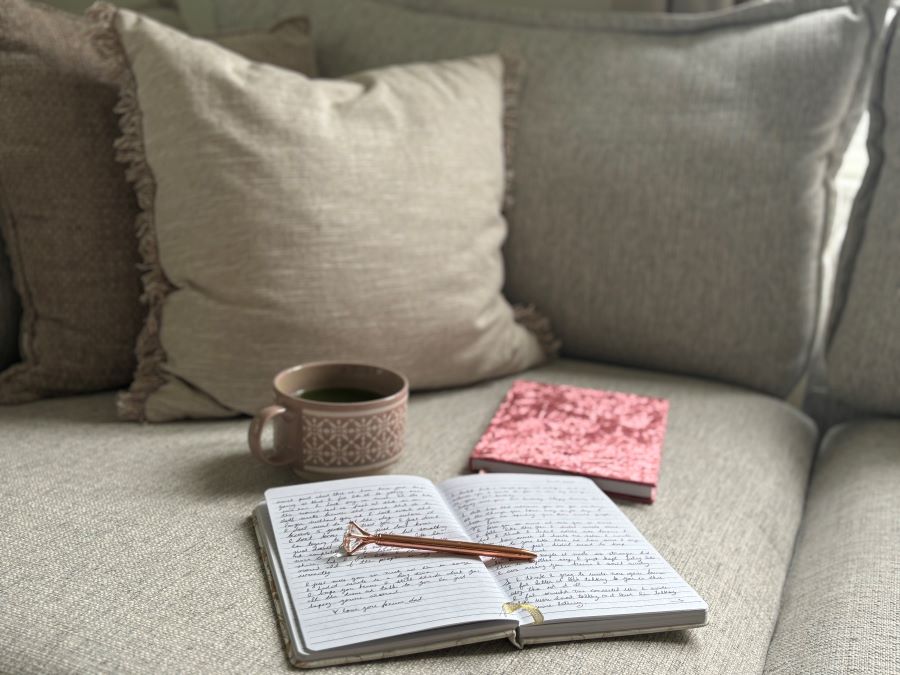
Journaling Tips
1. Find a Quiet Place To Write
The first of our journaling tips is to find a quiet place to journal.
It can be very hard to focus on going inward if your environment is loud and distracting.
If there is somewhere in your home that’s private and away from the noise, try writing in there.
It may allow you to dive a bit deeper because it can definitely be hard to look inward when you’re constantly being distracted on the outside.
2. Have Journaling Prompts Handy
Even if you’re pro at journaling sometimes we stumble and go blank.
That’s why keeping journal prompts handy is another great tip.
Have a few journal prompts for different situations ready and that way if you need a little help to get started you can pick a prompt or two and go from there.
Here are some powerful mindfulness journal prompts for self-discovery, they will help you learn more about yourself and why you do certain things. There are also many other great journal prompts you can find online.
3. Don’t Criticize Yourself
Anything you write is perfect because it’s all for the benefit and growth of yourself.
So please don’t criticize what you write, just allow the thoughts to flow freely and openly.
Even if you’re writing and it seems like things aren’t making sense, who cares? No one is reading it but you.
Just let your thoughts flow.
Sometimes they might be confusing at first but after it may actually allow you to open up and lead to deeper thoughts.
4. Embrace Imperfect Journaling
Your journaling practice doesn’t have to be perfect. You’re the only one looking at it and it’s all for your benefit.
It’s more important for your journaling to be helpful for you than to worry about what it looks or sounds like.
Even if it’s messy or you have to scratch something out, that’s okay!
Journaling isn’t a beauty competition, it’s a method of expressing yourself and sometimes that can be a little imperfect, which is perfect in my books!
5. Get A Journal You Love
The next one of our journaling tips is to get yourself a journal that you absolutely love!
I know that when I get a new beautiful journal my excitement for journaling skyrockets. I want to get home right away and start writing.
This might be something you need to do if you’re struggling to stick with your journaling routine.
Well here is the permission to go to your favourite bookstore and buy a cute journal that you will love to write in. Maybe even grab yourself a new pen while you’re at it.
Here is a super cute floral notebook if you love flowers.
It may be the little spark you need to get your journaling groove going.
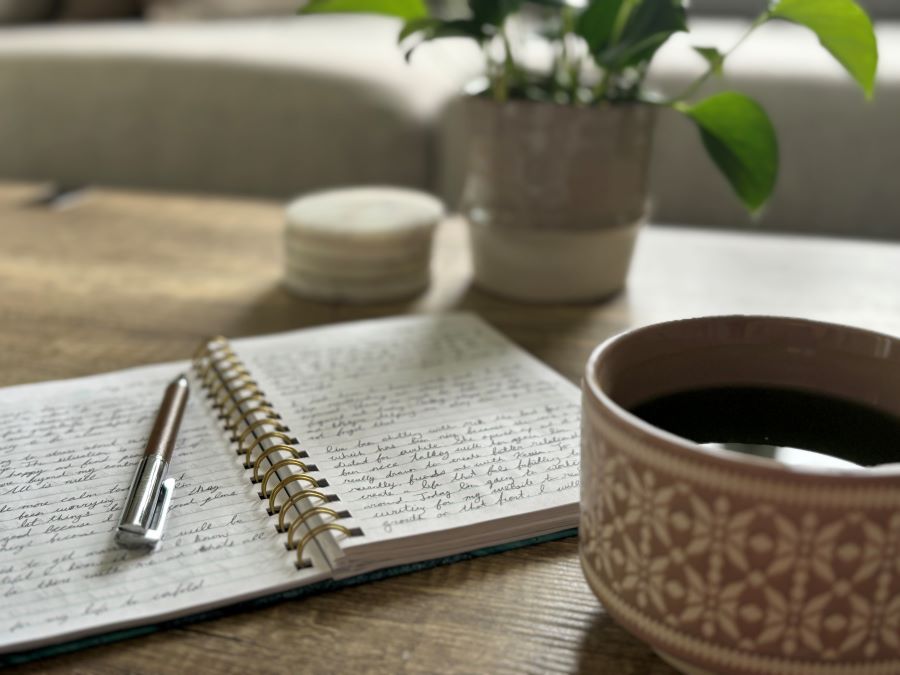
6. Try Different Journaling Times
Another one of our wonderful journaling tips is that you don’t have to journal at a specific time of day.
There is a lot of talk about journaling first thing in the morning or even before bed. Honestly, just focus on whatever time feels and works best for you.
The morning can be good because your mind is still fresh from sleeping and you haven’t had any external influences yet. And at night it can be good to do a brain dump if you need to get things off your chest.
But if neither of those times work for you then pick any time you have a few minutes and you can focus and express.
7. Schedule Your Journaling
If you find life gets busy and you tend to push your journaling off until later when you aren’t as busy, and then you just never do it… then you may need to schedule it.
I think we’ve all been there.
We get busy and say we’ll journal after this task or in an hour and then it just never happens.
Scheduling it out in your planner or calendar may be the fix for you.
Decide on a time and make an appointment with yourself to journal.
Say at 11 am on Saturday I’m going to sit down with my cup of tea and journal. Even if you don’t get to it every day you schedule it you’re more likely to do it if it’s been added into your schedule.
Practice physically scheduling in your calendar whether you have a written planner or you use a calendar app.
8. Start Small
The next one of our journaling tips is to start small.
Don’t go into journaling expecting to be writing 4 pages of well-articulated thoughts and insights.
Because honestly that probably won’t happen.
If you’ve never journaled before or haven’t in a while you might be out of the groove.
Don’t add any extra stress by saying you’re journaling has to be a certain length because that will make it stressful and journaling should be helping you de-stress, not causing stress.
Also, if you aren’t used to writing a lot, your actual hand may start to get sore if you do write a lot in one day.
It’s completely normal, and your hand and fingers will get stronger as you practice writing more.
Just focus on not expecting anything. It might be a little unorganized and all over the place at first but that’s okay, remember your journaling doesn’t have to be anything specific.
It’s all about whatever feels good for you and allows you to express yourself.
9. You Don’t Have to Journal On Paper
Journaling in a notebook or on paper is the most common way but there are other ways you can express yourself with journaling if those don’t align with you.
Some people just don’t love to write by hand, or maybe you find you can’t write as fast as your thoughts are coming.
That’s happened to me before.
You can journal even on your phone in your notes app. This is good because you can do it anywhere anytime. If you’re somewhere and feel like you need to get something off your chest, then open your Notes app and get writing away.
You can keep it in your notes app or if you want to handwrite it out later you can always do that.
Another great way to journal not on paper is in a Word document on your computer. This is similar to your notes app but might be easier since you can write with more than just your thumbs.
Again this can allow you to write faster if you find your thoughts flow faster than you can handwrite them.
Try different ways out and see what works best for you. There is no wrong way to journal.
10. Stack Habits
If you’re struggling with making journaling a habit then another one of our journaling tips you can try is to habit stack.
This is from the book Atomic Habits by James Clear. It is a great read if you’re interested in learning about creating better habits.
In this book, he talks about how adding new habits to your current routine can be easier if you stack them onto already existing habits.
For example, if you always have a cup of tea or coffee in the morning, then stack journaling on your morning cup of joe. So now instead of simply enjoying your coffee, you sip and journal.
Now it’s a bit easier to journal when you know you’ll be doing it while drinking your favourite morning beverage.
You can always stack it with your evening routine too.
Maybe you get ready for bed, brush your teeth, and then right after you’ll spend a few minutes journaling. So now you associate your nightly routine with journaling.
Get your mind used to the act of journaling after you do your night routine.
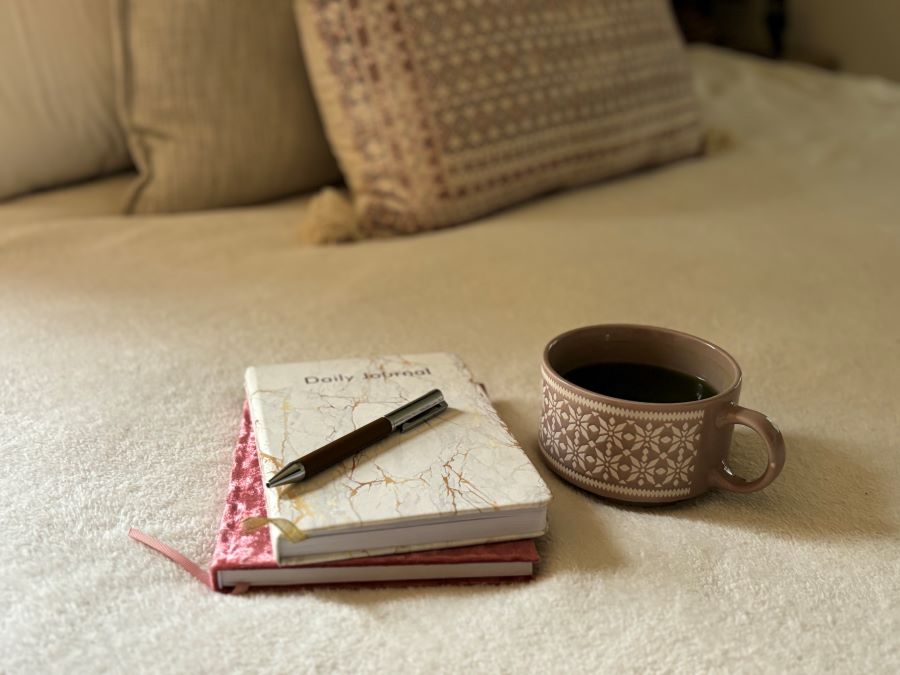
11. Start with Gratitude Journaling
Sometimes we sit down to journal, and nothing comes out. All of a sudden, our mind is blank.
A couple of minutes ago we had all these thoughts running through our mind but now there is silence… Well, to help that we can start with a little gratitude journaling.
Gratitude journaling is wonderful because it gets you physically writing and into a positive mindset since you are writing about things in your life that you’re grateful for and that bring you happiness.
Often after you’ve done some gratitude journaling other ideas and thoughts flow into your mind and you’ll be writing and expressing more in no time.
12. Change Up Your Environment
Sometimes we can feel stuck when we’re in the same place all the time.
Journaling is definitely a creative act and sometimes to get creative we need to change our environment. Change our scenery.
If you always sit at home at your dining table and journal, maybe try moving to the couch, or a comfy chair.
If you want to get out of your house entirely you can sit in a coffee shop or even at a beautiful park to journal while listening to the birds chirp.
This is a very helpful journaling tip to allow creativity and free thoughts to flow.
Sometimes all we need is a new environment to spark new thoughts.
13. Journaling Can be in Any Form
The wonderful thing about journaling is that because it’s so personal to you it can be in any shape or form you want!
Sure the most common way is to write in sentences or paragraphs but you can do anything.
There are also journaling techniques like bullet journaling, where you jot down small thoughts that aren’t full sentences at all.
You can also draw or doodle if the words just aren’t coming to you today.
Sometimes drawing is the perfect expression we need for that day. And if words come to your mind afterward then that’s just a bonus!
14. Keep Your Journal With You
Another one of our helpful journaling tips is to always keep your journal with you.
If you have a bag or purse that can fit your journal and pen then keep it in there all the time.
That way no matter where you are if the inspiration or need to journal hits, you can grab it and get writing.
15. Know Your Goals
Some people feel more comfortable simply writing all their thoughts out freely and letting them flow.
But maybe you’re the type of person who needs a little more structure. That’s why the next one of our helpful journaling tips may be for you.
It might help you get your thoughts flowing if you identify your whys, goals, and what you want to get out of your journaling practice.
Maybe you want to relieve anger around certain situations or figure out why you react or do certain things.
You could also want to write about the joys in your life, what inspires you to live, and your ideas for the future.
Anything and everything is open to write about.
Maybe try figuring out what’s important to you and what you want to write about, then you might have a better idea of how to start.
So now you have the best journaling tips to help you find your rhythm. Try them out if you feel stuck on what or how to journal.
Your journaling is an experience for you.
It’s meant to benefit your mental and emotional well-being so remember that it does not have to look or be like anyone else’s.
It can be whatever way feels most aligned with you. The way that allows you to fully express yourself and allows you to get the most out of journaling.
There is no right or wrong way to journal.
Every way is perfect.
Make it easy, make it fun. It’s all about you and helping you improve your well-being.



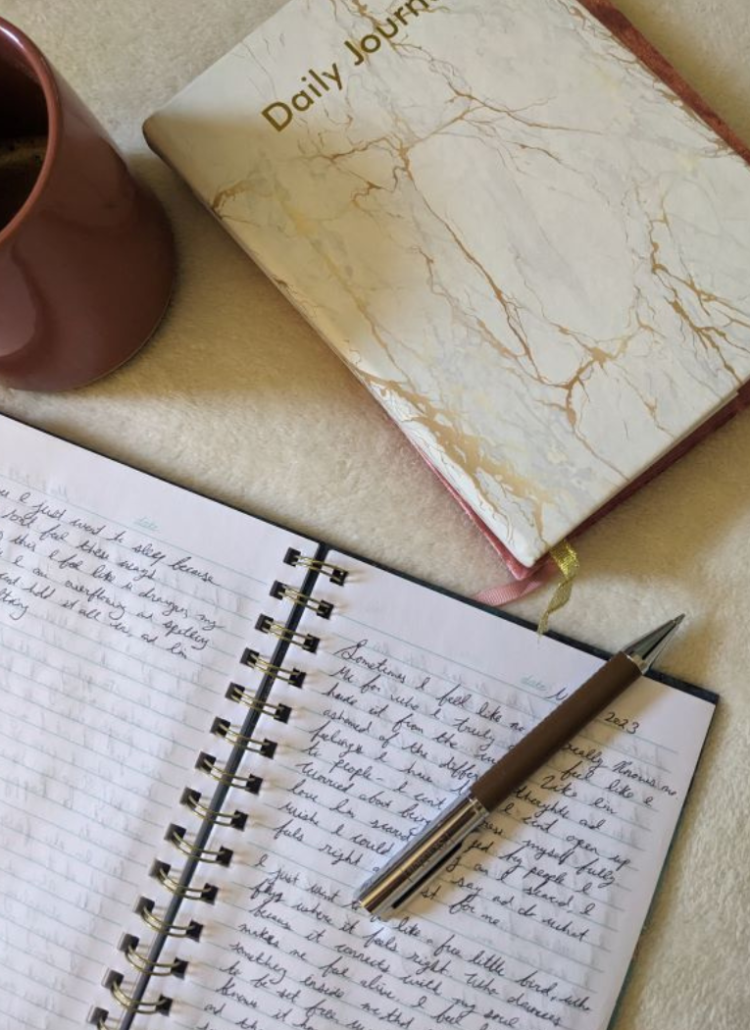
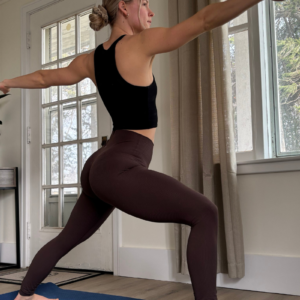
[…] Maybe that’s morning reading while sipping on your coffee or tea, or spending a bit of time journaling. These are some amazing journaling tips for beginners. […]